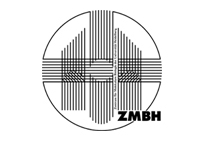Natural competence refers to the ability of bacterial cells to uptake and to integrate DNA from the external surroundings, a process that permits genetic plasticity and, for example, contributes significantly to the spread of antibiotics resistance. This mechanism relies on a contractile pilus machinery. In a recent study, the research teams of Khaled Selim (Project B12) and Sonja Albers (Project A01) demonstrated that in cyanobacteria, the second messenger c-di-AMP regulates the assembly of the pilus machinery, and thereby controlling natural competence.
C-di-AMP is one of the relatively newly discovered cyclic di-nucleotide-type second messengers, and its “complete” cellular roles are still being uncovered. In this study, Selim’s team revealed that ComFB protein acts as a receptor for c-di-AMP and is essentially required for regulating cyanobacterial natural competence (likely through c-di-AMP signaling).
It is still unclear whether similar mechanisms occur in pathogenic bacteria of clinical relevance. If confirmed, this could pave the way for novel strategies to fight multidrug resistant bacteria.
These results have been published in Cell Discovery.
Illustration: Khaled Selim (supported by AI)









